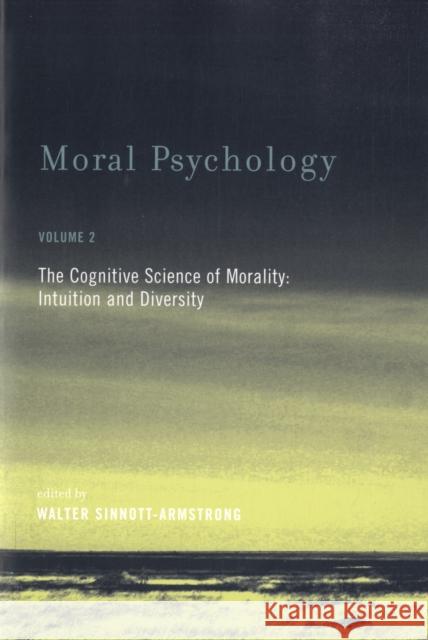Moral Psychology: The Cognitive Science of Morality: Intuition and Diversity » książka
Moral Psychology: The Cognitive Science of Morality: Intuition and Diversity
ISBN-13: 9780262693578 / Angielski / Miękka / 2008 / 608 str.
For much of the twentieth century, philosophy and science went their separate ways. In moral philosophy, fear of the so-called naturalistic fallacy kept moral philosophers from incorporating developments in biology and psychology. Since the 1990s, however, many philosophers have drawn on recent advances in cognitive psychology, brain science, and evolutionary psychology to inform their work. This collaborative trend is especially strong in moral philosophy, and these three volumes bring together some of the most innovative work by both philosophers and psychologists in this emerging interdisciplinary field. The contributors to volume 2 discuss recent empirical research that uses the diverse methods of cognitive science to investigate moral judgments, emotions, and actions. Each chapter includes an essay, comments on the essay by other scholars, and a reply by the author(s) of the original essay. Topics include moral intuitions as a kind of fast and frugal heuristics, framing effects in moral judgments, an analogy between Chomsky's universal grammar and moral principles, the role of emotions in moral beliefs, moral disagreements, the semantics of moral language, and moral responsibility.Walter Sinnott-Armstrong is Professor of Philosophy and Hardy Professor of Legal Studies at Dartmouth College.Contributors to volume 2: Fredrik Bjorklund, James Blair, Paul Bloomfield, Fiery Cushman, Justin D'Arms, John Deigh, John Doris, Julia Driver, Ben Fraser, Gerd Gigerenzer, Michael Gill, Jonathan Haidt, Marc Hauser, Daniel Jacobson, Joshua Knobe, Brian Leiter, Don Loeb, Ron Mallon, Darcia Narvaez, Shaun Nichols, Alexandra Plakias, Jesse Prinz, Geoffrey Sayre-McCord, Russ Shafer-Landau, Walter Sinnott-Armstrong, Cass Sunstein, William Tolhurst, Liane Young











